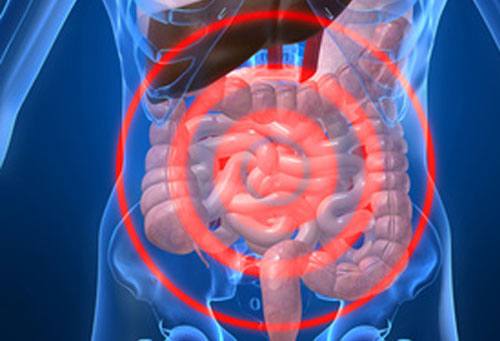Genentech, a member of the Roche Group, today launched an up-to-$800 million partnership with Parvus Therapeutics to develop, manufacture, and commercialize new treatments for inflammatory bowel disease (IBD), autoimmune liver diseases (ALD), and celiac disease (CD) based on Parvus’ Navacim™ precision medicine platform.
Navacims are designed to help protect against autoimmune disease by triggering a naturally occurring immunoregulatory mechanism of the mammalian immune system. According to Parvus, Navacims present a singular, peptide-major histocompatibility complex (pMHC) at supra-physiological density, targeting cognate T-cell receptors (TCR) on disease-relevant T cells.
Navacim binding causes a sustained assembly of TCR microclusters and prolonged signaling leading to disease-specific type 1 regulatory T (TR1) cell differentiation. The activity of Navacims is self-limiting, according to Parvus, because that activity depends on the presence of disease-causing, autoimmune T cells.
In preclinical disease models, Parvus said, Navacims have showed broad therapeutic activity and disease reversal across a range of autoimmune disorders including diabetes, multiple sclerosis, ALD, and IBD, while consistently preserving immunocompetence to resist viral, microbial, and tumor challenges.
“In preclinical testing, Parvus’ platform has shown the ability to induce and expand disease-specific regulatory T cells, which restore immune system balance and halt the autoimmune disease process,” James Sabry, MD, PhD, global head of pharma partnering, Roche, said in a statement. “Parvus’ technology represents a potentially transformative approach for treating autoimmune diseases by inducing immune tolerance without causing generalized immune suppression.”
Privately-held Parvus was launched in 2004 and incorporated five years later to develop and commercialize Navacims, which were discovered by Pere Santamaria, MD, PhD, the company’s CSO and founder. Santamaria is also the Julia McFarlane/Diabetes Canada professor of the Cumming School of Medicine at the University of Calgary.
Under a global collaboration and license agreement signed by the companies, Parvus has agreed to conduct preclinical development and clinical development activities through Phase I. Genentech has agreed to oversee clinical development from Phase II and beyond, including global regulatory submissions and worldwide commercialization of products.
Genentech has agreed to pay Parvus an undisclosed upfront payment, as well as payments tied to achieving research, development, and commercialization milestones for each disease area within the collaboration. Parvus said it is also eligible to receive additional milestone payments in other disease areas, as well as royalties on net sales of products resulting from the collaboration.
“We look forward to working with the Parvus team to hopefully bring this exciting advancement to patients,” Sabry added.
Roche/Genentech is the second pharma giant with which Parvus has established a collaboration. The first is Novartis, which in 2017 licensed rights to Parvus’ lead Navacim for treating type 1 diabetes.
“Our collaboration with Genentech is now the second partnership that we’ve entered into with a major biopharmaceutical company, which we believe reinforces the potential of our Navacim immunoregulatory therapeutic platform,” added Parvus president and CEO Curtis Ruegg, PhD. “Partnering with Genentech will enable Parvus to expand the Navacim pipeline to address several debilitating autoimmune diseases in gastroenterology.”


